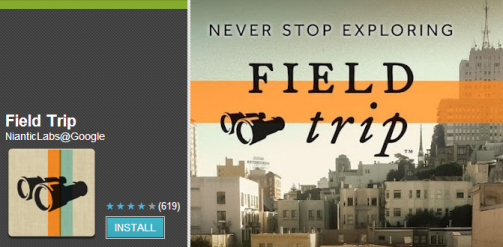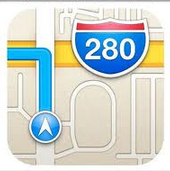What’s New in Local Search October 2012
Here is the October 2012 installment of 'What's New in Local Search'. It's been another busy month so I won't waste your time and am just going to dive right in.
Pew tells us that 45% of US adults now own smartphones and that 53% of all phone subscribers have smartphones. If you're still wondering if you need a mobile Web site, you're already losing business because you don't.
Groupon debuts a payment system to make it easier for deal purchasers to pay via Apple's mobile devices.It also gives merchants a bit of a break on transaction fees for their Groupon offerings. I can't imagine that discount has much of an impact, though, when Groupon starts by taking 50% of already heavily discounted prices on deals.
Google Business Photos interior photos are now appearing online. (These are pictures from professional photo shoots set up through Google's referral program.) Google is now also showing a small orange dot on the map to indicate that these interior shots are available for viewing by clicking on them.
There are a lot of complaints in the Mapmaker forum about aggressive bots reverting edits as quickly as they can be made. Even trusted reviewers are unable to get passed them. Hopefully, Google will rein them in soon - before too many volunteer edits give up because their time and efforts are being wasted.
If you want to post reviews to Google via mobile, the Google+Local app is the easiest way to accomplish it. If you try to do it via other means, you may not see a review button to click on.
Merging Google+Local and Google Places is still not right for all businesses. If you have a single location and a storefront business (not a service area business that goes to the customer) and you have created a Google+Local business page using the same email address as the one that controls your Places listing, then go for it. Otherwise, Google is advising that you wait and allow it to make the merge algorithmically. If you have already successfully merged and verified the two, then you should be making all of your updates and edits via your Google+ page and not through the Places dashboard. The only thing you should be doing in your dashboard is viewing your statistics.
Field Trip, Google's new Android mobile app lets you know when something that may interest you is happening nearby your location. You opt in to allow discoverability on topics you'd like to be alerted about. Then, when you are close to a spot that fits the bill, Google serves up an information card about that point of interest (which can include individual businesses, attractions, parks, malls, landmarks, etc). Among the active categories users may choose to be alerted about are Google Offers and travel 'experiences' via Vayable

Here's a likely scenario: You're walking downtown and as you approach a retailer, an information card, containing their data and current Google Offer is delivered to your smartphone. We all anticipated this and it's exciting to see it coming together. I have no doubt that other advertising will appear on these information cards, as well. This will allow Google to push ads to app users without any search behavior taking place.
Since it's a Google product, there are sure to be some wrinkles to iron out, but we're approaching a highly profitable new advertising channel for Google. There's no search involved and the app user is allowing Google to push information to them based on their location and interests. Cha-ching! Pay attention to this and figure out how it works. The potential is enormous!
Chitka tells us mobile coupon search is mainly fueled by those seeking discounts on clothing and restaurant purchases. Together, those account for about 50% of mobile coupon search right now. If you're in either of these spaces, make sure you're pushing coupons out. If customers aren't finding yours, they're finding those of your competitors.
Andrew Shotland publishes a list of the largest Local Search directories at Yext.com. Keep in mind that these are labeled the largest directories, not the best or the most recommended. There's definitely a difference.
Categories are jumping around on Goolge+Local Pages. Upon the merge, Google+Local pages gave us many more than the 5 categories the business owner tagged their enterprise with in their Places dashboard. It seemed like every category a business had ever been placed in was showing up when the category field on Google+Places was expanded. Then, the categories on Google+Local pages were stripped down to just one main category, although some listings still show 2.
Only Google knows for sure what's going on, but there are a couple of things that may be influencing what's happening with categories. The categories in Mapmaker and those in Places do not match up with each other, so something has to change in order for the two to play well together. Google's quietly released the Field Trip app, is based on information cards about Points of Interest. The information cards are based on the structured data Google knows about a business and some of that data is categories.
It seems as though Google has to realign all of their platforms to use the same categories in the same ways, so don't forget about categories. Google is not neglecting or disregarding them. It's trying to make them work better for all of us. They will always be a key piece of data for communicating to the Search Engines what a local business does and sells.
Googler, Jade W, tells us that uncommon read custom - categories are no longer supported in Places or Google Plus. She suggests you use Google-specified categories, instead. Get in there and look around to see which other relevant categories you can choose and do so ASAP, but don't be tempted to choose marginal categories just to get 5 of them. That won't help and may even hurt you. You may want to check your categories at the major data providers and in other directories, particularly the Internet Yellow Pages, as Google is very likely looking at these to see where you fit in.
David Mihm releases a visual chart of the Apple Maps ecosystem, which shows where Apple Maps is getting its information right now, as far as an outsider can tell, anyway. It shows that the primary data providers are a force and that Yelp cannot be ignored if you want to draw iPhone users into your business.
-

The baked in maps on the new iPhones are widely slammed. Heck, Apple even apologizes for them, even though Google releases half-baked products on a regular basis. I've tried Apple Maps and don't think it sucks as much as the media says it does. I certainly wouldn't discount it and expect it to improve rapidly because there's so much at stake. Personally, I'm trying to learn as much as I can about optimizing for Apple Maps because there are so many iPhone users out there. What about you?
Yelp's clout in the universe soared, much to the chagrin of the SMB's who hate it. It's a strong piece the backbone of Apple Maps and will continue to grown in influence as Apple improves it maps product and more and more i-users update to OS6 and new i-products are purchased.
Surveys are showing increased awareness among SMBs for the need for mobile marketing. Some are diving directly into mobile, without concentrating much on PC web marketing. In my experience, mobile paid ads are an instant win for many of them, even those with small budgets.
Advanced Local U sold out at SMX East. It was also the most attended workshop of the pre-conference event. I started teaching Local Search Workshops solo in conjunction with Search Engine Strategies conferences back in 2008. Things sure have changed since then!
October & November have historically been months when Google makes BIG updates in the Local Search space. Don't be surprised if you wake up one morning to see a surprise or two in your search results.

